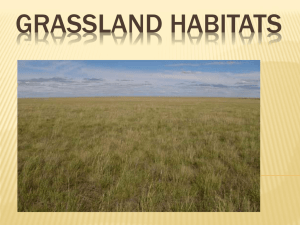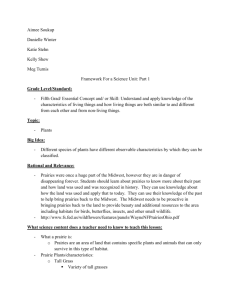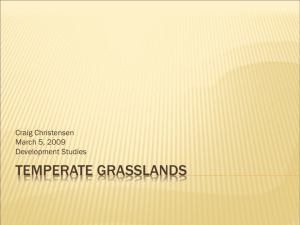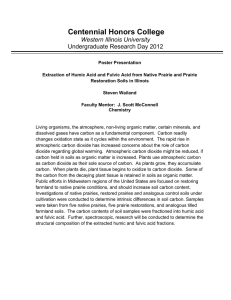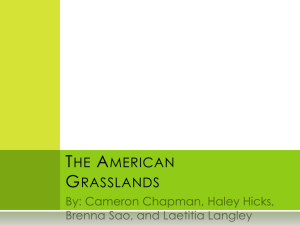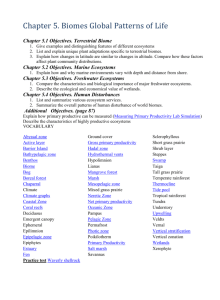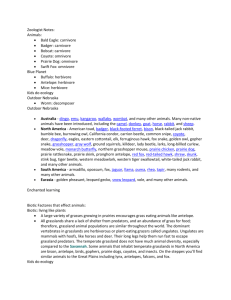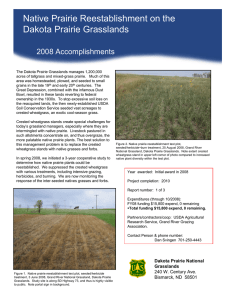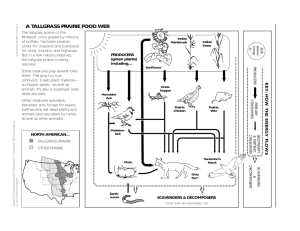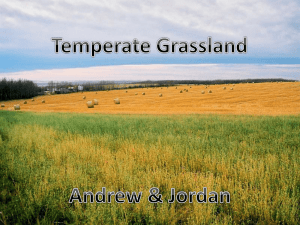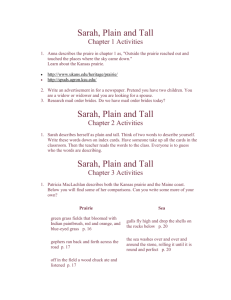Prairie Soils
advertisement
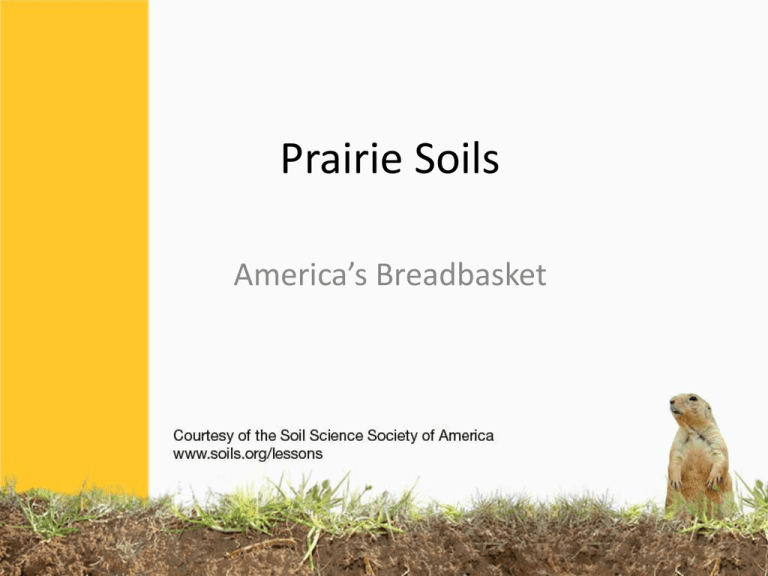
Prairie Soils America’s Breadbasket Most of OUR FOOD comes from the Prairies! Including corn, wheat and soybeans… Can you think of things that are made out of these products? Prairie Soils are a type of GRASSLAND. It is too DRY to be a forest, and too WET to be a desert. So a diverse species of grasslands developed. At the end of the year, grassland plants die back, but their leaves and roots remain, acting like a MULCH. Why is this good for the SOIL? There are three types of prairie: Short grass grows in the far western states that are dry, like Montana, and Colorado. Tall grass grows where it is wet, like in Illinois and Iowa. In states like North and South Dakota, the grasses are mixed. MOLLISOL Deep, Fertile TALL GRASS PRAIRIE Mollis means SOFT in Latin, and these soils are RICH, DARK, and SOFT. The taller the grass, the darker the soil. Which state would have darker soil: Colorado, or Illinois? SHORT GRASS PRAIRIE There are lots of organisms in grasslands: Including wildflowers, clovers, bacteria, fungi, and beetles And animals like Prairie Dogs and Bison. Can you name any others? The prairies vary in relief from flat to having rolling hills Most of our FOOD is grown here And we need to keep the soils fertile. Cattle produce meat and milk, but how can cattle help with fertility? Manure is put into holding areas… …and then spread onto crops. It contains MACRONUTRIENTS like nitrogen, phosphorus, and potassium Some farmers make their own compost, by recycling manure and mixing it with plants Why are nutrients important again? What happens if there are too many nutrients? Vocabulary • • • • • • • CLORPT Erode (erosion) Groundwater Horizon Organic matter Organisms Parent material •Productive •Relief •Runoff •Sediment •Slope •Topsoil (A horizon) Vocabulary • Eolian – Parent materials deposited by wind with more than 5% sand • Prairie – Grasslands that form in climates too dry to be a forest and too moist to be a desert. • Loess – Parent materials deposited by wind with less than 5% sand
